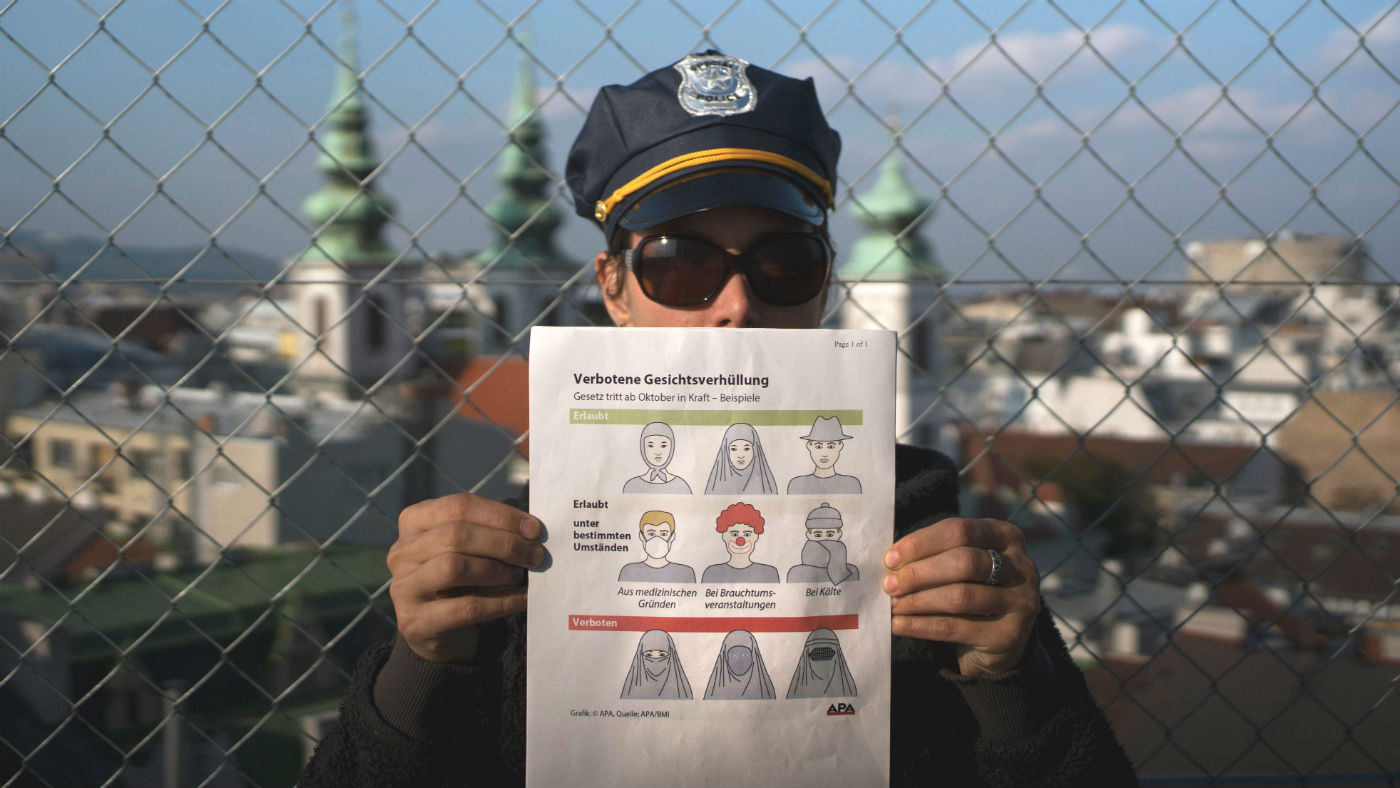Austrian ‘burka ban’ comes into effect
New legislation to ‘protect Austrian values’ comes less than a month before general election

A free daily email with the biggest news stories of the day – and the best features from TheWeek.com
You are now subscribed
Your newsletter sign-up was successful
The Austrian government’s ban on full-face Muslim veils has come into effect, less than a month before a general election which is expected to deliver big gains for far-right parties.
According to the government, legislation requiring faces to be visible from the hairline to the chin in public places is aimed at protecting Austrian values.
However, the law has been condemned by Muslim groups as disproportionate, given that just a tiny minority of Austrian Muslims wear a full veil.
The Week
Escape your echo chamber. Get the facts behind the news, plus analysis from multiple perspectives.

Sign up for The Week's Free Newsletters
From our morning news briefing to a weekly Good News Newsletter, get the best of The Week delivered directly to your inbox.
From our morning news briefing to a weekly Good News Newsletter, get the best of The Week delivered directly to your inbox.
The BBC estimates as few as 150 women in the entire country wear a full burka, and reports that Austrian tourism officials fear the ban will deter visitors from the Gulf.
While the law targets Muslim veils it also places restrictions on the use of medical face masks and clown make-up.
Both France and Belgium have introduced a burka ban in recent years, and a similar law is passing through the Dutch parliament. Germany does not have formal legislation banning full-face veils, but last year Chancellor Angela Merkel said they should be prohibited “wherever it is legally possible”.
Despite calls from UKIP to introduce such a ban, there are no restrictions on the burka and niqab in the UK.
A free daily email with the biggest news stories of the day – and the best features from TheWeek.com
-
 Britain’s ex-Prince Andrew arrested over Epstein ties
Britain’s ex-Prince Andrew arrested over Epstein tiesSpeed Read The younger brother of King Charles III has not yet been charged
-
 Political cartoons for February 20
Political cartoons for February 20Cartoons Friday’s political cartoons include just the ice, winter games, and more
-
 Sepsis ‘breakthrough’: the world’s first targeted treatment?
Sepsis ‘breakthrough’: the world’s first targeted treatment?The Explainer New drug could reverse effects of sepsis, rather than trying to treat infection with antibiotics
-
 Epstein files topple law CEO, roil UK government
Epstein files topple law CEO, roil UK governmentSpeed Read Peter Mandelson, Britain’s former ambassador to the US, is caught up in the scandal
-
 Iran and US prepare to meet after skirmishes
Iran and US prepare to meet after skirmishesSpeed Read The incident comes amid heightened tensions in the Middle East
-
 Israel retrieves final hostage’s body from Gaza
Israel retrieves final hostage’s body from GazaSpeed Read The 24-year-old police officer was killed during the initial Hamas attack
-
 China’s Xi targets top general in growing purge
China’s Xi targets top general in growing purgeSpeed Read Zhang Youxia is being investigated over ‘grave violations’ of the law
-
 Panama and Canada are negotiating over a crucial copper mine
Panama and Canada are negotiating over a crucial copper mineIn the Spotlight Panama is set to make a final decision on the mine this summer
-
 Why Greenland’s natural resources are nearly impossible to mine
Why Greenland’s natural resources are nearly impossible to mineThe Explainer The country’s natural landscape makes the task extremely difficult
-
 Iran cuts internet as protests escalate
Iran cuts internet as protests escalateSpeed Reada Government buildings across the country have been set on fire
-
 US nabs ‘shadow’ tanker claimed by Russia
US nabs ‘shadow’ tanker claimed by RussiaSpeed Read The ship was one of two vessels seized by the US military